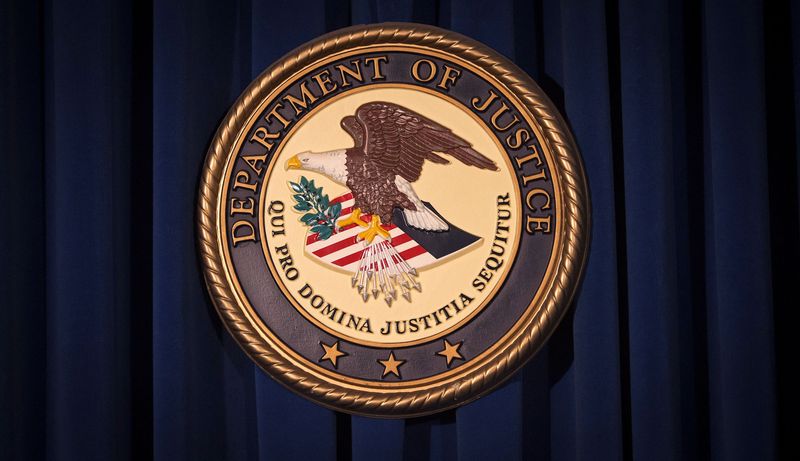By Megan Davies and Chris Prentice
NEW YORK/WASHINGTON (Reuters) -U.S. prosecutors are exploring whether they can use a federal law originally enacted to take down the mafia, in a sprawling probe of hedge funds and research firms that bet against stocks, according to two sources familiar with the situation.
The Justice Department last year issued subpoenas to dozens of firms, including such well-known names as Citron Research and Muddy Waters (NYSE:WAT) Research LLC, as part of the sweeping probe focused on potentially manipulative trading around negative reports on listed companies published by some of their investors, Reuters and other media have reported.
While prosecutors haven't made any decisions yet, potential charges under the Racketeer Influenced and Corrupt Organizations Act (RICO) were an option on the table, the sources said.
In the past, prosecutors have built RICO cases alongside other allegations, such as manipulation. One of the most high profile cases brought under the RICO Act included that of Michael Milken, who was indicted in the 1980s for racketeering and securities fraud but reached a plea deal, pleading guilty to securities violations but not racketeering or insider trading.
Reuters could not ascertain which types of charges the agency was leaning toward at this stage of the investigation or whether the probe would eventually lead to charges.
Spokespeople for the Justice Department in Washington and the U.S. attorney's office in Los Angeles, which are involved in the probe according to the sources, declined to comment.
Citron declined to comment.
A spokesperson for Muddy Waters did not immediately respond to a request for comment.
The potential use of the 1970 law, which has not been previously reported, provides new insights into the scale and ambition of the investigation. The probe marks a new frontier for the Justice Department's unit in Washington tasked with rooting out corporate crime.
A racketeering case could allow prosecutors to ensnare a broad swathe of investors involved in an alleged "criminal enterprise," even if they participated indirectly, lawyers said.
But such a case would also face more challenges than a narrower one aimed at a smaller group of people. That's in part because prosecutors have to establish a pattern of activity, they said.
Among the activities the Justice Department is investigating is whether funds conspired to perpetrate a so-called "short and distort scheme," sources have previously told Reuters.
In such a scheme the funds would have placed trades that stood to profit if a company's stock fell and then issued false or misleading negative research reports about the company.
Prosecutors are also investigating the relationships between the short-sellers who publish the reports and hedge funds and other investors that may have profited, the sources have said.
They are examining whether there is coordinated trading designed to boost trading volumes and exaggerate price drops on news of the short reports, Reuters previously reported.
RICO charges have historically been used to combat bribery, money laundering, or drug trafficking conducted by organized criminal enterprises such as the mafia. They are unusual in the world of finance but not unprecedented.

U.S. prosecutors in 2019 charged then-current and former JPMorgan Chase & Co (NYSE:JPM) executives with racketeering and manipulating prices of precious metals.
"RICO statutes haven’t been used in this realm often in recent years, but they aren’t limited to organized crime," Robert Frenchman of Mukasey Frenchman LLP in New York said. "It’s certainly in the prosecutors’ toolbox."